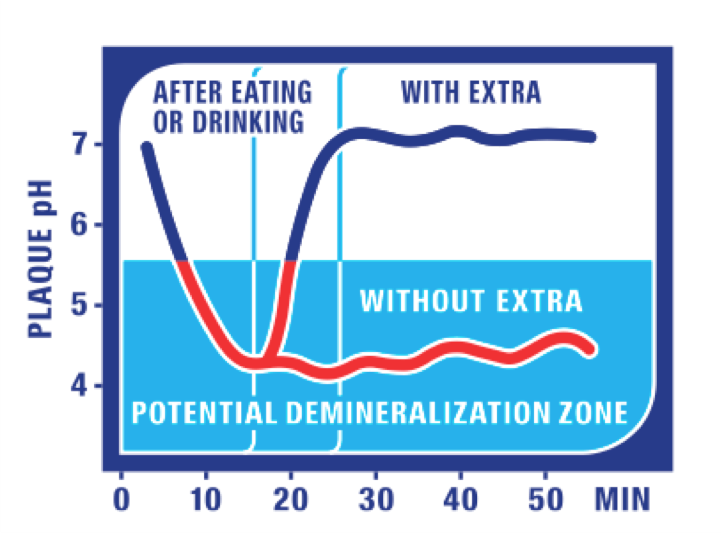As a dentist, I’m constantly telling my patients how to look after their teeth and improve their oral health. Most of the messages are similar: see your dentist regularly, brush for two minutes, twice a day, spit your toothpaste out and don’t rinse, use mouthwash at a different time of the day to brushing, floss more, eat less sugar. It’s all great advice and the evidence shows the messages are getting across as tooth decay in England has fallen from 46% to 28% between 1998 and 2009.*
This said, unfortunately millions of people in England, almost a third of the population, still have decay. Younger age groups are most affected. This leads us to question, what else can be done? What other tips or advice can we give to help reduce decay?
When I discuss oral health with my patients, one of the most common reasons they give for failing to follow the advice given is time. ‘I don’t have time to brush for two minutes twice a day,’ they tell me, or ‘I don’t have time to floss’. Whilst this seems a pretty poor excuse, I think it’s important that we offer further ways to help improve oral health. Chewing sugar-free gum is a good piece of advice and is an easy way to help us to keep our teeth healthy because it’s not only time efficient but it doesn’t cost much!
So, why chew gum?
When we eat and drink, bacteria in our mouths (plaque) is then able to use the sugars and carbohydrates in food to produce acids. These acids weaken the tooth surface and eventually cause tooth decay. Acids also cause the pH in the mouth to fall below what we call the ‘critical pH,’ which is when decay can occur. The longer the plaque is below this ‘critical pH,’ then the greater the chance of decay occurring. Saliva plays a key role in bringing your pH levels back up and preventing decay.
Chewing sugar-free gum has several benefits which can help prevent this decay. Firstly, and most importantly, the act of chewing stimulates saliva production – increasing flow rate and reducing the amount of time the plaque is below the ‘critical pH.’

Image from Wrigley Oral Healthcare Programme showing the effect of sugar free chewing gum on plaque pH – www.wrigleyoralhealthcare.co.uk
What’s more, chewing sugar-free gum is effective at removing food debris from the pits and grooves of the back teeth. If left, it is this debris that could be used by the bacteria to cause decay.
“Chewing sugar-free chewing gum for 20 – 30 minutes after eating/drinking will produce the greatest benefits. It’s also a great way to freshen your breath!”
I’d recommend sugar-free chewing gums as they contain sweeteners such as xylitol and sorbitol. These sweeteners cannot be used by the bacteria to make acids and, as a result, decay does not occur. There is even some evidence to suggest that some of these sweeteners may even help prevent decay by having a direct effect on certain types of bacteria that cause it. Chewing sugar-free gum for 20 – 30 minutes after eating/drinking will produce the greatest benefits. It’s also a great way to freshen your breath!
So, if you’re going to make one small change to improve your oral health, start chewing sugar-free gum for an effective and time-efficient way to reduce tooth decay and to make a big difference to improving your oral health!
* Adult Dental Health Surveys – 1998 and 2009.
About David Bretton
David is a young graduate, qualifying from Newcastle in 2013. He now works in a mixed NHS and private practice at Honley Dental in Yorkshire. Since qualifying David has completed a number of courses in advanced restorative and aesthetic dentistry and he is very passionate about the profession.
[mc4wp_form]
